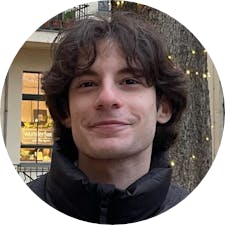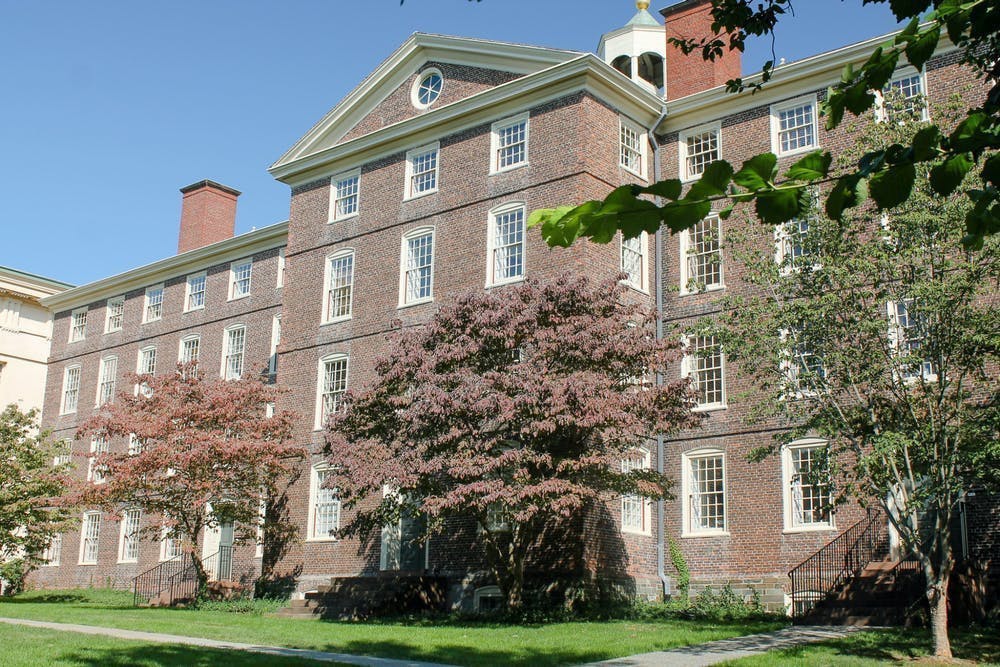Members of the University’s administration and faculty discussed a proposal for the Center of Philosophy, Politics and Economics at the final faculty meeting of the semester Dec. 7.
President Christina Paxson P’19 introduced plans to establish a Center for Philosophy, Politics and Economics as part of her faculty meeting report.
Focused on an interdisciplinary approach to learning, the Center would join “students and scholars … doing (work with) historical political economy, normative political economy and then positive political economy” to work on “separate but interdependent” issues, Provost Richard Locke P’18 told The Herald.
The Center, as outlined in the proposal document shared with faculty and reviewed by The Herald, would “bring together the current network of faculty, educational programs and research activities across the University … (to) support an interdisciplinary approach to education and scholarship at the undergraduate, graduate, post-graduate and faculty levels.”
The new Center would absorb programs from the Political Theory Project, which is an interdisciplinary research center investigating “the ideas and institutions that make societies free, prosperous and fair” through a historical, philosophical, political and economic lens, according to the PTP website. These programs include the PTP’s Janus Forum Lecture Series, Odyssey Lecture Series and Postdoctoral Fellowship Program.
The PPE Center would expand on these programs to “include a broader range of academic disciplines and perspectives,” according to the proposal. It will also add additional programming, including an undergraduate reading group called the Philosophy, Politics and Economics Society, graduate student fellowships and research projects such as Depolarizing a Divided America, an initiative that will test a model for decreasing political polarization in the United States.
According to Locke, the new infrastructure would ensure that “regardless of one’s political or normative perspectives, people will be able to come together and work alongside each other, and I hope someday work together to exchange ideas.”
Paxson echoed the importance of the University hosting a center dedicated to “supporting diverse intellectual perspectives” and prompting discussions on what such a space could look like, she told The Herald.
“We have a very polarized society right now, and the idea that we need to have a center that's devoted to diverse perspectives is something we have to talk about,” Paxson said.
Some faculty members who attended the meeting expressed their concern of replicating certain aspects of the PTP when the Center absorbs the organization.
“Many members of our faculty have felt that the PTP has been a pernicious presence on campus for nearly 20 years, and that it has thumbed its nose at many of the commitments we have made to diversity, equity and inclusion,” Seth Rockman, associate professor of history, said during the meeting.
“Its record of paying undergraduates to participate in its programming, its reliance on private funding — all of these things fly in the face of what many of us are doing in our departments,” Rockman added. “The idea that we're going to build a new house on what seems to many of us like a rotten foundation is particularly disquieting.”
The greater range of projects proposed to be offered by the PPE are aimed at reflecting a greater range of perspectives within the Center that many faculty members believe has been missing within the PTP, Locke explained.
What “we’re doing is taking the best pieces (of the PTP) and incorporating them into something larger,” Locke said. We are “building a new foundation because the governance is completely new, the funding model is completely new and the integration with the rest of the campus is different.”
In the meeting, Kristina Mendicino, associate professor of German studies, cited concern over the PTP receiving partial funding from the Koch Foundation, a foundation run by billionaire and conservative political mega-donor Charles Koch.
A faculty proposal that would alter the policy on gifts and grants “so that faculty could not get funding from sources involved in science denial, in some cases through dark money practices,” is already under review by the Advisory Committee on University Resources Management, Paxson said at the meeting. Recommendations are expected in the spring with further discussions to follow.
Other faculty members, while supporting the interdisciplinary and community-based focus of the Center, suggested that the proposal itself could benefit from restructuring.
“A center like this with the kinds of goals that I heard mentioned today would, I think, be very welcome to a lot of us on campus,” Professor of History Michael Steinberg said. But some structural and intellectual restructuring of the plan “would be extremely productive.”
Locke emphasized the importance of community input during the deliberation.
“What I'm hoping is that we can talk about the issue, figure out where we can meet (and) where we can come up with assurances, … because no one wants some bad thing on campus,” Locke said. “Regardless of the outcome, let's make sure that this conversation is conducted in such a way that we can all come back and be in community afterward.”
Discussions regarding the proposed Center will continue at the next faculty meeting in February and over the following months.

Alex Nadirashvili was the managing editor of multimedia and social media for The Brown Daily Herald's 133rd Editorial Board. As a former University News editor, he covered faculty, higher education and student life, though his proudest legacy is The Brown Daily Herald TikTok account.





